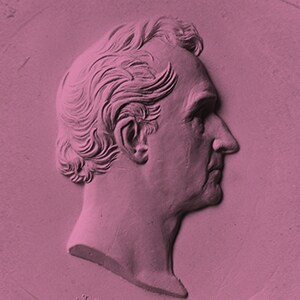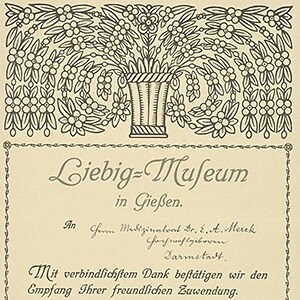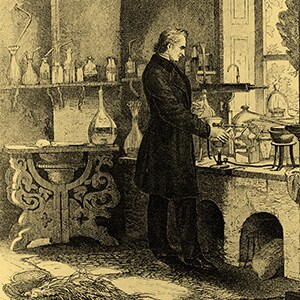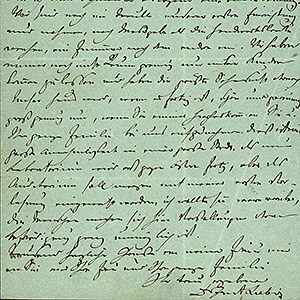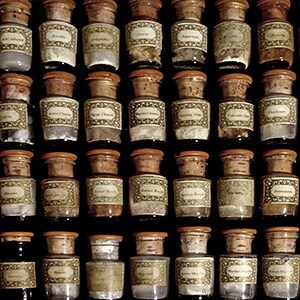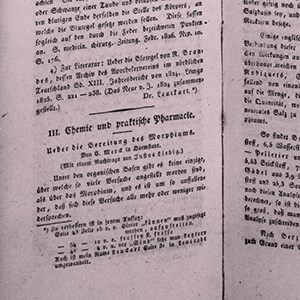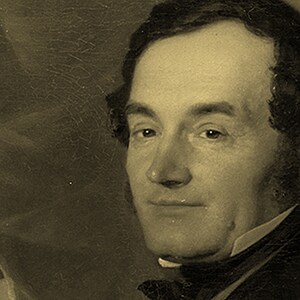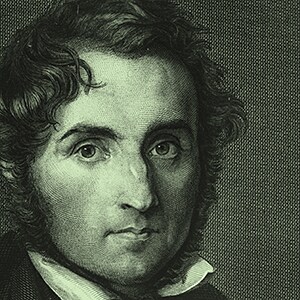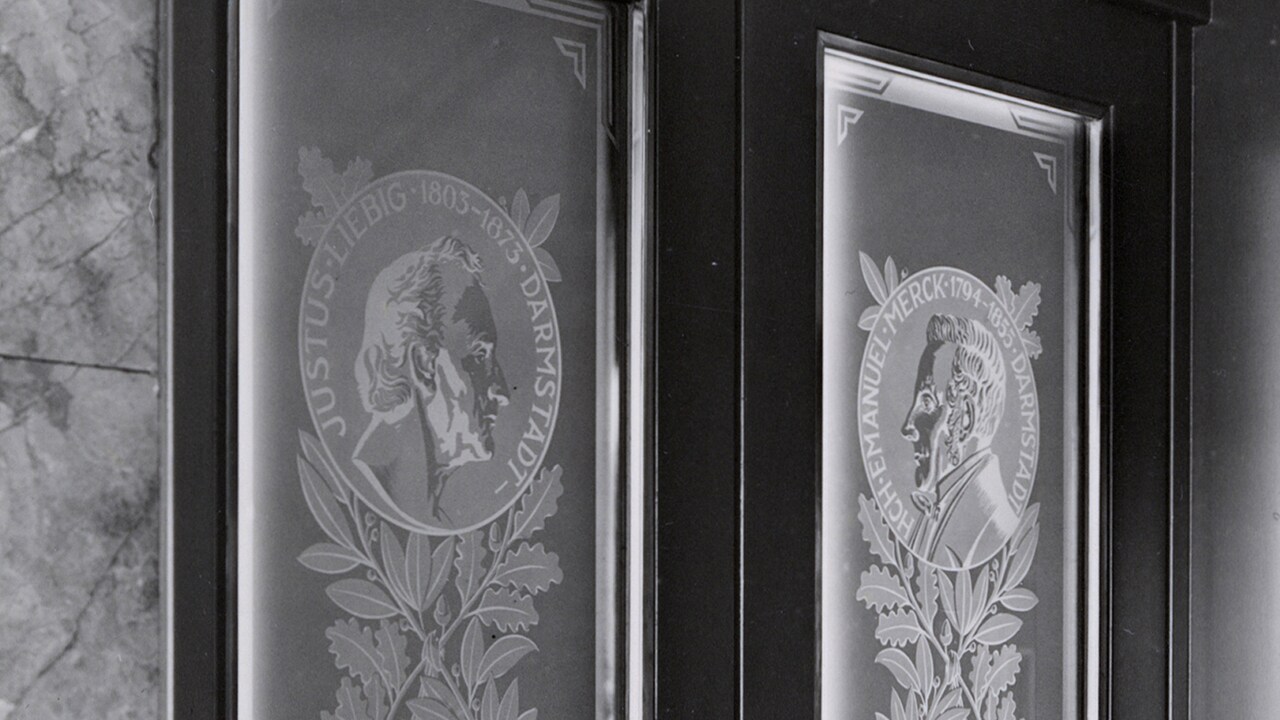
»I wrote to [Emanuel] Merck today about the narcotine; two ounces should be sufficient for you.«
Justus Liebig to Friedrich Wöhler, 1843
At first, it’s arguably professional interests that bring the two Darmstadt-born men together. Emanuel Merck, who knows from his time at the Trommsdorff Institute that the value of theoretical education is on par with that of practical training, is naturally extremely impressed by Liebig’s views on the need for hands-on, experimental chemistry lessons and his struggle to establish a pharmaceutical-chemical institute in Giessen.
Conversely, Emanuel Merck’s successful attempts to isolate alkaloids and his resulting industrial activities certainly catch the attention of Liebig, who holds the art of producing a pure preparation in the most practical way in high esteem and seesit as an essential asset for the trove of medicines. It’s hardly surprising that he soon assumes an active role in Emanuel’s experiments and plans, supporting them wherever possible. Hereafter, the two embark on a close scientific and personal relationship.
Emanuel Merck’s scientific paper »On preparing morphine«, published in the journal »Magazin für Pharmazie« in 1826, documents this connection. The original article is resubmitted by Liebig, who adds a comment and then sends it back to the journal. Just two years before, Liebig is appointed as a professor at the University of Giessen. In 1836, the two friends become co-editors of the »Magazin für Pharmazie«.
A testament to their close relationship, Emanuel supplies Liebig’s laboratories in Giessen and later in Munich with various collections of preparations. On November 16, 1852, Liebig writes, »I have just received a box containing 34 of the finest preparations. I’ve never seen […] such splendid alkaloids. […] The department’s chemicals cabinet is so poorly stocked that I hardly know what to do. In terms of organic bases, I now have a greater abundance than any other collection«.
In 1847, Emanuel Merck’s son Georg becomes a student of Liebig, earning a doctorate at the University of Giessen in 1848. While working in Liebig’s laboratory, he discovers an alkaloid in the residues of opium extraction, which he calls papaverine. A further testament to their mutual bond of trust is the fact that Liebig decides to send his son Hermann to learn the pharmaceutical profession under the supervision of Emanuel Merck.
Emanuel Merck is also mentioned numerous times in letters exchanged between Liebig and Wöhler. On March 15, 1843, for example, Wöhler makes the following request, »At the risk of bothering you again, I would ask you to procure some quinic acid forme no matter the cost. Perhaps from Merck; I would write to him myself if I didn’t know that one word from you is worth more than one hundred letters from me.«
In the 1820s, the chemist Justus Liebig, who was born in Darmstadt in 1803, develops close professional and personal ties to Emanuel Merck, who is nearly ten years Liebig’s senior. Emanuel’s scientific paper »On preparing morphine« is published in the »Magazin für Pharmazie« in 1826, with a comment added by Liebig.
Emanuel Merck frequently supplies Liebig with various collections of preparations for his teaching and research at the universities in Giessen and Munich. One of these alkaloid collections from 1838 is preserved in the Merck KGaA, Darmstadt, Germany, Archives.
The close relationship between Emanuel Merck and Liebig endures: As members of the »Liebig Museum Society«, Emanuel’s sons support the building of amuseum dedicated to Liebig in 1920 and also its reopening after the end of World War II in 1952. Moreover, the Justus Liebig memorial is erected in front of the Engel-Apotheke in 1913.

